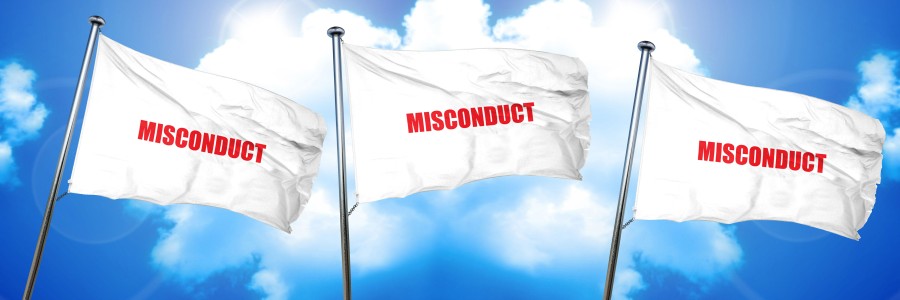
Employee Gross Misconduct in the WorkPlace
Understanding Employee Gross Misconduct: Definitions and Examples
In my role as an employment law expert, I often guide employers through cases involving gross misconduct. Understanding what constitutes employee gross misconduct is crucial for any employer, business owner or manager. It’s a term that covers a range of serious behaviours which breach the trust and confidence inherent in the employee-employer relationship.
Clarifying Legal Definitions and Real-World Examples
Gross misconduct extends beyond mere poor performance or minor infractions. It typically involves actions that are intentionally harmful or recklessly disregardful of an employer’s interests. To clarify, consider these examples:
- Theft or fraud
- Physical violence or bullying
- Intentional damage to company property
- Severe breaches of health and safety rules
- Use of drugs or alcohol at work
Each of these instances can irreparably damage the employer-employee relationship, warranting serious disciplinary actions, including potential dismissal.
Identifying Gross Misconduct in the Workplace
As an employer, recognising behaviours that constitute gross misconduct is crucial. The challenge lies in discerning these serious offenses from less severe misconduct or performance issues. Effective identification hinges on context and a consistent approach.
Guidelines for Recognition and Consistency
Firstly, familiarise yourself with your own company policies and legal guidelines surrounding employee gross misconduct. Consistency is key. You must apply these standards uniformly across your organisation to avoid claims of unfair treatment. While each case demands individual consideration, some general red flags include:
- Behaviour causing significant harm to the organisation or its staff
- Actions that represent a serious breach of your company’s code of conduct
- Illegal activities within or outside the workplace
- Conduct causing irreparable damage to business relationships
Approach each case with a fair, objective mindset. Remember, accusations of gross misconduct carry serious implications for the accused employee. It’s not just about protecting your business, but also about ensuring a fair and just workplace.
Legal Framework: Rights and Obligations
As an experienced employment lawyer, I stress the importance of understanding the legal framework surrounding employee gross misconduct. This knowledge is vital for employers, business owners and managers to navigate these situations lawfully and effectively.
An Overview of UK Employment Law Regarding Gross Misconduct
UK employment law provides specific guidelines on how to handle gross misconduct. These guidelines aim to protect both the employer and the employee. As an employer, you have the right to terminate employment without notice in cases of gross misconduct. However, this right comes with the obligation to conduct a fair and reasonable investigation into the alleged misconduct. Failure to adhere to these legal standards can lead to claims of unfair dismissal.
Understanding these rights and obligations is crucial. They serve as a roadmap for legally sound decision-making when dealing with gross misconduct. Keep in mind, the law requires you to treat each case individually, considering all relevant factors.
Effective Handling of Gross Misconduct Cases
In my professional experience, handling cases of employee gross misconduct demands a structured and fair approach. Effective handling not only ensures legal compliance but also maintains workplace harmony.
Best Practices for Investigation and Documentation
The key to managing gross misconduct lies in a thorough and unbiased investigation process. As an employer, ensure that you:
- Begin the investigation promptly upon learning of the alleged misconduct.
- Gather all relevant evidence, including statements from witnesses.
- Allow the accused employee an opportunity to explain their side of the story.
- Keep detailed records of every step of the investigation process.
Documentation plays a pivotal role in defending your actions should the case escalate to an employment tribunal. Always document the rationale behind your decisions, especially if it leads to dismissal. This approach not only protects your business legally but also promotes transparency and fairness in the workplace.
Remember, a fair and lawful procedure is your best defence against potential legal challenges. It also sends a strong message to your employees about the seriousness with which you approach workplace misconduct and your commitment to a fair and respectful work environment.
Mitigating Risks: Policies and Training
In my extensive practice in employment law, I often advise employers on mitigating the risks associated with employee gross misconduct. A proactive approach, involving clear policies and comprehensive training, is essential.
Developing Robust Company Policies
Establishing clear, written policies on gross misconduct is the first step in risk mitigation. These policies should clearly define what constitutes gross misconduct in your organisation. They should also outline the consequences of such actions. Ensure these policies are easily accessible and understandable to all employees. Regularly review and update these policies to reflect any changes in law or your business environment.
The effective communication of these policies is crucial. Every employee, from entry-level to management, should be aware of these standards and the seriousness with which you treat violations. This transparency not only helps prevent potential misconduct but also ensures employees feel treated fairly.
Importance of Regular Employee Training and Awareness Programs
Training plays a pivotal role in preventing employee gross misconduct. Regular training sessions help reinforce your company’s policies and the legal implications of misconduct. These sessions should also educate employees on recognising and reporting misconduct. Consider including interactive elements and real-life scenarios to enhance understanding and retention.
Training should not be a one-time event but an ongoing process. Continuous education ensures that employees remain aware of their responsibilities and the standards expected of them. It also keeps them updated on any changes in policies or legal requirements.
Navigating the Aftermath: Post-Misconduct Considerations
Dealing with employee gross misconduct does not end with the resolution of the incident. As an employment law expert, I counsel employers on the importance of managing the aftermath effectively.
Steps to Take Following a Gross Misconduct Incident
Once you resolve a gross misconduct case, focus on restoring normalcy in your workplace. Communicate the outcome to your staff in a manner that respects the privacy and dignity of all involved. Avoid sharing specific details and focus on reinforcing your commitment to maintaining a respectful and safe work environment.
Consider offering support to your team, especially if the incident had a significant impact on morale or productivity. This could include counselling services or additional training. Such support demonstrates your commitment to employee well-being and can help rebuild trust and confidence in your leadership.
Review your policies and procedures in light of the incident. Reflect on what you could improve or change to prevent similar occurrences in the future. Continuous improvement in your practices not only enhances legal compliance but also contributes to a healthier, more productive work environment.
Call John Bloor at EBS Law on 01625 87 4400 if you are an employer and need free Employment Law Advice.

